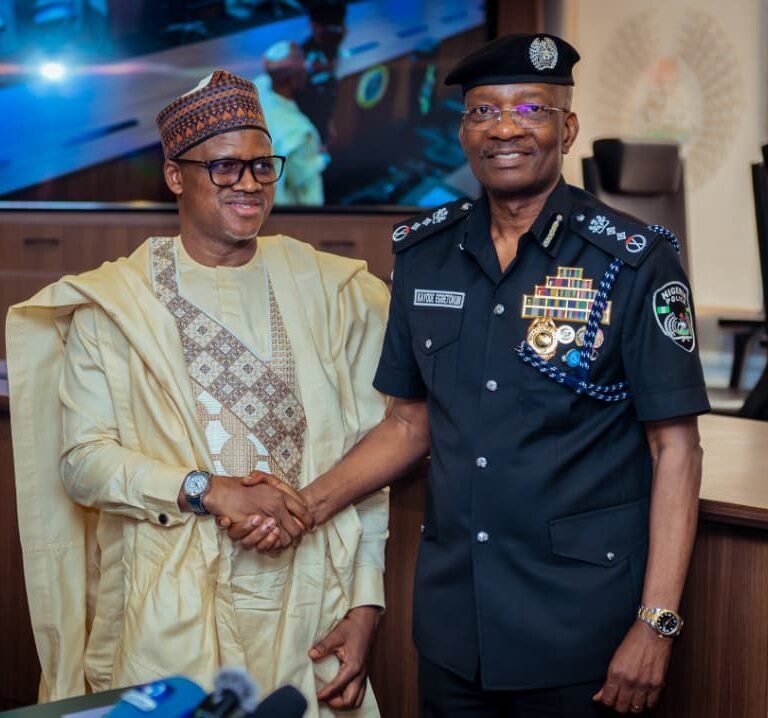
By Ameh Gabriel
The Comptroller General of the Nigerian Correctional Service (NCoS), Sylvester Mahmoud El-Kobouti, has called for stronger collaboration with the Independent National Electoral Commission (INEC) to safeguard and advance the voting rights of inmates across Nigeria’s correctional facilities.
El-Kobouti made the appeal on Friday during a courtesy visit to INEC Chairman, Professor Mahmood Yakubu, at the Commission’s headquarters in Abuja a meeting he described as “long overdue.”
While introducing himself to the electoral chief, the NCoS boss underscored the need to give a voice to a community that is often ignored.
“I come with a message to speak on behalf of a group that is too often overlooked but has the potential to contribute meaningfully to our democracy the inmates of Nigeria,” El-Kobouti said.
He noted that out of over 81,000 inmates currently in custody, more than 66% are awaiting trial and are therefore presumed innocent under the law, retaining their fundamental human rights, including the right to vote.
Citing past court rulings including a decision upheld by the Court of Appeal and a recent National Assembly resolution, El-Kobouti stressed that incarceration should not automatically strip individuals of their democratic rights.
“These people have inalienable rights to vote. The fact that they are in custody should not be grounds to deny them that right,” he maintained.
The Comptroller General urged INEC to work closely with the NCoS to review legal, technical, and operational frameworks for implementing inmate voting, assess implications of past judgments, and design a phased roadmap for inclusion in the electoral process.
He described the engagement as more than a symbolic gesture, but a necessary step toward fairness and dignity for the incarcerated.
“Anywhere I go, I remind people that anyone could find themselves in incarceration. We must treat the incarcerated with fairness and dignity,” he added.
El-Kobouti thanked Professor Yakubu and the Commission for what he called “a long-overdue conversation” on protecting the democratic rights of all citizens, regardless of their status.






